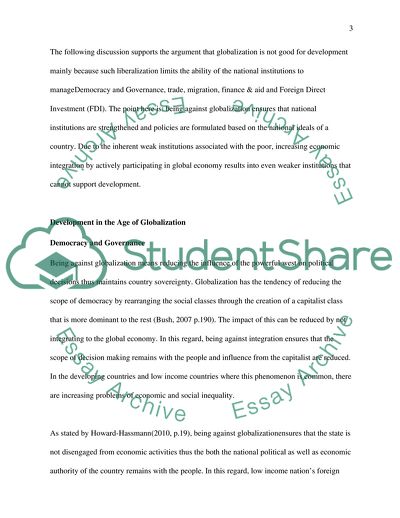Cite this document
(Is Development Best Achieved by Being For, or Against, Globalization Literature review Example | Topics and Well Written Essays - 2500 words, n.d.)
Is Development Best Achieved by Being For, or Against, Globalization Literature review Example | Topics and Well Written Essays - 2500 words. https://studentshare.org/macro-microeconomics/1815865-is-development-best-achieved-by-being-for-or-against-globalization
Is Development Best Achieved by Being For, or Against, Globalization Literature review Example | Topics and Well Written Essays - 2500 words. https://studentshare.org/macro-microeconomics/1815865-is-development-best-achieved-by-being-for-or-against-globalization
(Is Development Best Achieved by Being For, or Against, Globalization Literature Review Example | Topics and Well Written Essays - 2500 Words)
Is Development Best Achieved by Being For, or Against, Globalization Literature Review Example | Topics and Well Written Essays - 2500 Words. https://studentshare.org/macro-microeconomics/1815865-is-development-best-achieved-by-being-for-or-against-globalization.
Is Development Best Achieved by Being For, or Against, Globalization Literature Review Example | Topics and Well Written Essays - 2500 Words. https://studentshare.org/macro-microeconomics/1815865-is-development-best-achieved-by-being-for-or-against-globalization.
“Is Development Best Achieved by Being For, or Against, Globalization Literature Review Example | Topics and Well Written Essays - 2500 Words”. https://studentshare.org/macro-microeconomics/1815865-is-development-best-achieved-by-being-for-or-against-globalization.


